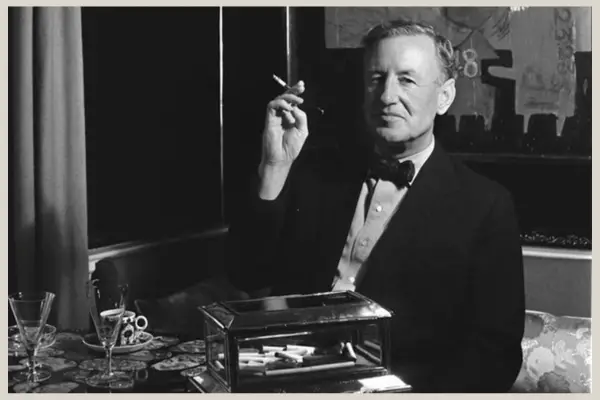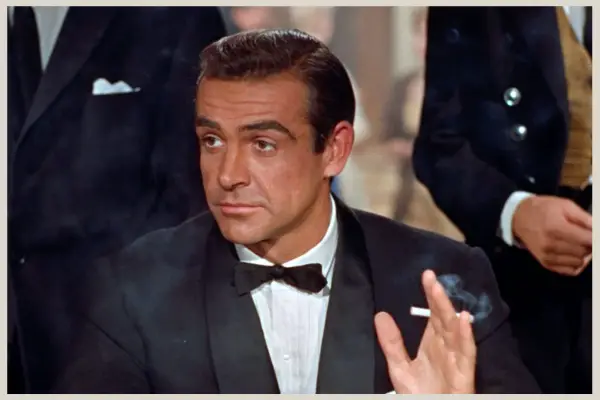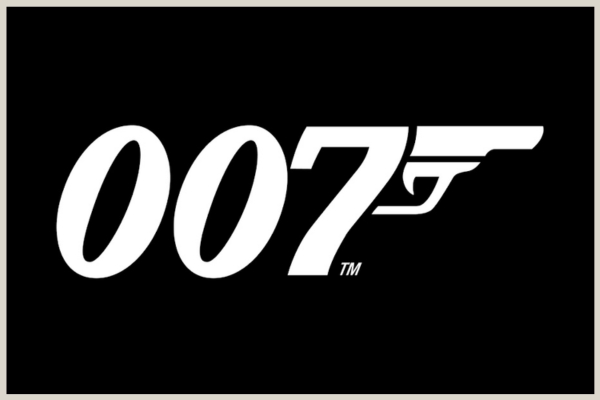What Does 007 Stand For?
When you hear the number “007”, what’s the first thing that pops into your mind? For many of us, it’s the suave, martini-drinking British spy, James Bond. But what does 007 stand for? And why has it stood the test of time in our collective consciousness?
007 isn’t just a number, it’s a symbol of action-packed adventures, luxury cars, exotic locations, and of course, and a man with an undeniable allure who women can’t get enough of.
Starting as the brainchild of Ian Fleming, James Bond has evolved from pages of spy novels to a massive movie franchise. And while there have been many spies in pop culture, none have come close to the global impact of 007.
Whether it’s his impeccable style, his gadgets, or his thrilling escapades, James Bond, represented by that special code, has become an enduring emblem of espionage, adventure, and style. So, strap in as we dive deeper into the world of 007 and explore what it truly stands for.
Historical Background of 007
Dive into any spy novel or movie, and you’ll quickly realize that numbers and codes play a huge part. But before we delve into the meaning of 007, let’s start with the man behind it all: Ian Fleming.
Ian Fleming, born into a world of privilege and distinction in early 20th-century England, had a life that reads almost as fascinating as one of his novels. He wasn’t just a writer but also a journalist and a naval intelligence officer. And it’s in these varied experiences, from the world’s posh social circles to the gritty trenches of World War II, that the seeds of James Bond were sown.

But why the number 007? In the shadowy realm of spies, numbers and codes are more than just identity, they’re a lifeline. They keep secrets, well, secret. They keep agents safe. And they add layers of mystery and allure.
In historical espionage, codes were essential for transmitting messages, identifying covert operatives, and maintaining stealth. Regardless of its origins, it became the identifier of James Bond, giving him an edge of mystery and a hint of danger.
And so, combining his personal experiences with the allure of secret codes and all else that goes with him, Fleming gave us James Bond, the 007 we’ve come to love and celebrate.
What Does 007 Mean?
Have you ever wondered why out of all possible combinations, James Bond was assigned the number 007? Let’s decode this iconic numeral.
Starting with the “00”. In the world Fleming crafted, not all spies are created equal. The “00” prefix is a clear indication of the authority and license given to a select group of MI6 agents: the license to kill.
While the intelligence world is often filled with gathering intel and covert operations, sometimes things take a more deadly turn. And when they do, you’d want a “00” agent on your side. The very mention of these two zeros signifies a special kind of operative, one who can make the hard decisions and carry them out.

But what about the ‘7’? The story behind this number is a bit more enigmatic. Some say that Fleming chose ‘7’ due to its historically lucky connotations. Others believe it was a nod to the real-world inspirations or events from the world of espionage.
But regardless of the true origin, this number added an extra layer of intrigue to Bond’s persona. ‘7’ being considered a universally lucky number, it’s almost as if luck always finds its way back to Bond, no matter how dire the situation.
And it’s this unique combination of ‘007’ that sets Bond apart in his universe. It’s not just about the missions or the actions but the weight and symbolism of that code.
In Fleming’s world, there might be a 006 or a 008, but there’s only one 007. And that distinction elevates Bond from being just another spy to the embodiment of a legacy.
Other ’00’ Agents in the Bond Universe
While 007 is undoubtedly the star of the show, he’s not the only ’00’ agent out there. The Bond universe, both in Fleming’s novels and the films, has introduced us to several other ’00’ agents, each carrying their own set of numbers and characteristics.
Remember Alec Trevelyan, AKA 006, from GoldenEye? Formerly a friend and ally to Bond, his perceived betrayal and subsequent transformation into a villain added depth to the narrative, showing that ’00’ agents can find themselves on either side of the line.

Then there’s 008, often alluded to but rarely seen. In the Bond universe, 008 is considered a backup for 007, taking over missions when Bond is unable to perform his duties. The mention of other agents like 002, 003, and 009 also surfaces occasionally, either as allies or as reminders of the risks of the job.
The presence of other ’00’ agents in the Bond universe also highlights the vast and intricate world of MI6. It’s not just about Bond’s solo missions. It’s about a network of elite spies, each with their own stories and challenges. Yet, despite the shared prefix, it’s Bond’s unique blend of skill, charm, and sometimes sheer luck, that makes 007 stand out in a crowd of formidable spies.
What Does 007 Stand For?
James Bond is symbolized by three simple numbers, but he represents so much more than just a fictional character. He’s an icon, transcending literature and film to become a cultural touchstone.
Over the years, as we’ve traced the origins of Ian Fleming and delved into the significance of the ’00’ and that enigmatic ‘7’, it’s evident that Bond embodies both the mystique and the evolution of societal ideals and aspirations.
The character’s journey, through the appearance of six very different actors, showcases a tapestry of narratives that have captivated generations, and which likely means 007 stands for something different everytime.
But no matter who dons the tuxedo, those three numbers, 007, are a legacy, encapsulating action, romance, and a timeless charm that remains unparalleled in the world of fiction. And in the realm of literary and movie characters, there’s only one 007.

